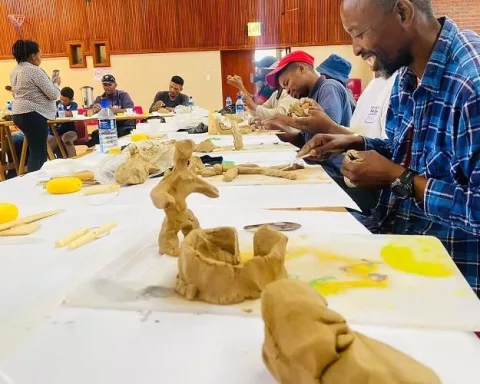Gender-based violence (GBV) is a pervasive issue in South Africa’s Western Cape, with overburdened police forces leading to incomplete investigations and missing case files resulting in a minimum of ten GBV cases being discarded within a six-month timeframe. The Western Cape’s Department of Police Oversight and Community Safety has called for immediate action to address this structural issue, highlighting the severity of the problem and the need for accountability and justice for victims. It is society’s shared duty to staunchly oppose gender-based violence and push for decisive action to protect vulnerable individuals.
What is Gender-Based Violence in South Africa’s Western Cape?
Gender-based violence (GBV) is a serious problem in South Africa’s Western Cape, with a minimum of ten GBV cases being discarded within a six-month timeframe due to overburdened police forces. Police inefficiency has led to incomplete investigations and missing case files, denying justice to victims of GBV. The Western Cape’s Department of Police Oversight and Community Safety has called for immediate action to address this structural issue.
The Western Cape, nestled within the vast landscapes of South Africa, is a region that pulsates with cultural richness and historical resonance. However, it grapples with severe societal problems, the most alarming of which is gender-based violence (GBV). This destructive element is eroding the region’s societal fabric. The Western Cape’s Department of Police Oversight and Community Safety (POCS) recently shone a light on this distressing issue, bringing a problem that has been lurking in the darkness to the forefront.
Police Inefficiency and the Dismissal of GBV Cases
An alarming report from the department highlighted that a minimum of ten GBV cases within Kraaifontein district had been discarded within a six-month timeframe due to overburdened police forces. These cases formed part of a broader group of 243 cases from 58 different police stations across the province that were scrutinized by the department’s Court Watching Briefs (CWB) unit between April and September 2023. Of the total, 89 were GBV-related cases that were discontinued due to reasons such as missing case files, incomplete investigations, failure to summon witnesses, or the accused not appearing in court.
These figures do not only represent data on a sheet but are actual instances of human suffering. In Kraaifontein alone, dismissed GBV cases comprised an attempted murder case, six assault cases, and three instances of protection order violations. Each case that gets dismissed signifies an individual’s denied justice, leaving a painful narrative unresolved.
The Underlying Crisis and the Call to Action
Reagen Allen, the Western Cape’s Minister of Police Oversight and Community Safety, expressed deep concern over these alarming statistics. Allen’s insights on the situation underscore the severity of the problem – a structural issue that demands immediate action. He stressed that the information gathered by the CWB, although substantial, may not accurately portray the breadth of GBV in the province, suggesting a hidden crisis that is more deeply rooted than initially thought.
The CWB unit, which was established in 2013 under POCS, is mandated to enhance police oversight as per Section 206(3) of the Constitution. This initiative’s nationwide adoption is a testament to its significance in evaluating the quality and effectiveness of police investigations. Yet, the CWB’s insights on police inefficiencies uncover a disturbing reality.
The Overburdened Police Force and the Pursuit of Justice
Police officers, burdened with the responsibility of examining over 200 case files, are spread too thin. This heavy workload compromises their efficiency, leading to a failure in adequately serving the victims. However, Allen firmly asserts that this challenging situation does not excuse the officers from their obligation to uphold their oath and fulfill their constitutional duties.
Measures have been taken against officers who fall short in their responsibilities. Allen’s forthcoming interactions with high-ranking officials – the Western Cape’s Provincial Police Commissioner, Lt Gen Thembisile Patekile, and Western Cape’s Director of Public Prosecutions, Advocate Nicolette Bell – demonstrate his dedication to instigating change. The objective is to pinpoint areas of improvement to prevent similar future shortcomings.
Allen emphasizes the necessity of addressing the pain, suffering, and injustice experienced by GBV victims. The department suggests that the police develop an improvement plan to decrease the number of cases removed from the roll due to inefficiencies. Allen stresses that the essence of oversight should not only be about compliance but to stimulate superior service delivery.
The credibility and trustworthiness of the police force are crucial, as they are anticipated to offer professional, high-quality services that ultimately safeguard and serve individuals severely impacted by crime. The time has come to shift the conversation from the shadows to the spotlight and replace inactivity with decisive action. The quest for justice for victims and accountability from those in charge of upholding the law is paramount. In this ongoing struggle for justice and peace, it is society’s shared duty to staunchly oppose gender-based violence.
What is Gender-Based Violence (GBV) in South Africa’s Western Cape?
Gender-based violence (GBV) is a pervasive issue in South Africa’s Western Cape, encompassing a range of violent behaviors such as physical, emotional, and sexual abuse, stalking, and harassment. It is a severe problem that has been affecting the region for years, with police inefficiencies leading to incomplete investigations and missing case files, resulting in a minimum of ten GBV cases being discarded within a six-month timeframe.
How is Police Inefficiency Contributing to the Dismissal of GBV Cases?
Overburdened police forces are contributing to the dismissal of GBV cases in South Africa’s Western Cape. Police officers are examining over 200 case files, which compromises their efficiency, leading to incomplete investigations, missing case files, and failure to summon witnesses, among other issues. This heavy workload has resulted in a minimum of ten GBV cases being discarded within a six-month timeframe.
What is the Western Cape’s Department of Police Oversight and Community Safety Doing About this Issue?
The Western Cape’s Department of Police Oversight and Community Safety has called for immediate action to address the structural issue of police inefficiency, which has led to the dismissal of GBV cases. The department has suggested that the police develop an improvement plan to decrease the number of cases removed from the roll due to inefficiencies. The department is also interacting with high-ranking officials to pinpoint areas of improvement and hold people accountable for their constitutional duties.
What is the Significance of Court Watching Briefs (CWB) Unit?
The Court Watching Briefs (CWB) unit was established in 2013 under the Western Cape’s Department of Police Oversight and Community Safety (POCS) to enhance police oversight as per Section 206(3) of the Constitution. The initiative’s nationwide adoption is a testament to its significance in evaluating the quality and effectiveness of police investigations. The CWB’s insights on police inefficiencies uncover a disturbing reality, demanding immediate action.
What is the Society’s Shared Duty Regarding GBV Cases in South Africa’s Western Cape?
It is society’s shared duty to staunchly oppose gender-based violence and push for decisive action to protect vulnerable individuals. The credibility and trustworthiness of the police force are crucial, and they are expected to offer professional, high-quality services that ultimately safeguard and serve individuals severely impacted by crime. The time has come to shift the conversation from the shadows to the spotlight and replace inactivity with decisive action.
How Severe is the Problem of GBV in South Africa’s Western Cape?
Gender-based violence (GBV) is a destructive element that is eroding the societal fabric of South Africa’s Western Cape. Police inefficiency has led to incomplete investigations and missing case files, denying justice to victims of GBV. A minimum of ten GBV cases within Kraaifontein district had been discarded within a six-month timeframe. These cases formed part of a broader group of 243 cases from 58 different police stations across the province that were scrutinized by the department’s Court Watching Briefs unit between April and September 2023. The Western Cape’s Department of Police Oversight and Community Safety has called for immediate action to address this structural issue.












